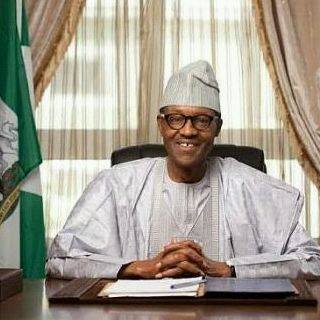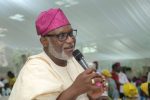Time For Buhari To Reshuffle


“Time changes everything,” was the title of Tummy Duncan’s song, recorded by Miki & Griff of Pye UK Recording. Truth to tell, there is time for everything and, indeed, “time changes everything.” There is the time for a motor driver to change the gear for effective acceleration; he cannot maintain the same gear for too long in the old manual gear lever. A school headmaster or principal changes his teachers for effectiveness, or even requests for his transfer to another school if it is necessary to do so.
In the same vein, I am inclined to reason that it is time for President Muhammadu Buhari to reshuffle his cabinet. But because sometimes not all the ministers are included in a cabinet, I shall generalise by the use of “ministerial reshuffle,” instead of “cabinet re-shuffle.” Be that as it may, the phrases can be used alternatively.
President Muhammadu Buhari’s ministers came on board after the elections of 2015. The size of a cabinet can be large or small, depending on political and economic circumstances. Invariably, in war-time, cabinet size is small. For instance, during the Nigerian civil war of 1966 to 1970, General Yakubu Gowon, under Chief Obafemi Awolowo’s directives, himself an astute political leader with a stickler for discipline, maintained modest cabinet size. Ministries were combined in one person-Chief Anthony Enahoro, another shrewd politician, had the unique opportunity, variously holding Information, Labour, and External Affairs portfolios.
During World War I, in Britain, cabinet size was just fine. Generally, it can number as many as 18 members, but Prime Ministers Sir Alec Douglas Home and Harold Wilson had 23members. President Muhammadu Buhari has a Minister holding three portfolios-Power, Works and Housing. Each of these portfolios is hydra-headed, large with perplexing problems. Similarly, each of them is the cynosure of the public. Which of them is not? Is it the Power Ministry that is basic to our economic growth as people live in pitch darkness, or Housing which is one of the necessities of life existence or Works Ministry that has its tentacles spread throughout the country? There is no state in the country without the presence of the Works Ministry.
The nation is not at war, but one person combines the three powerful ministries, making a Lilliputian of an elephantine man. How else can a legal practitioner be described, if he combines the three powerful ministries? Such man of strength and intellect may be rendered incompetent, despite that ministerial functions and responsibilities are backed by expert civil servants. For effectiveness, these three portfolios must be separated and be distributed among three different hands. The time is now, but not later. And it involves ministerial reshuffle.
Another portfolio that is calling for a change is the Federal Ministry of Information upon which this writer touched on July 7, 2017, in a piece entitled “Solving our national problems’’. The Information Minister may be competent, but decidedly not in that Federal Ministry where he is not making the image of the President; a state governor relished in consistently rubbishing the image of the then ailing President in London, with no steps taken to check-mate the governor. Our Information Minister is too docile to the point of nausea. He must be removed in the re-shuffle.
Similarly, the political head of the Federal Ministry of Finance, otherwise known as the ‘’Chancellor of the Exchequer’’ needs to be changed in any reshuffle. The ministry plays a pivotal role in the affairs of any nation, more so, as the Central Bank of Nigeria (CBN) comes under the Ministry of Finance. Apart from the fact that it is the Federal Government’s Banker, it is the commercial banks’ Bank.
For a long time now, the Finance Minister is buffeted by the critics of the recession. At the time of drafting this piece, the exchange rate is ₦367 to a Dollar. The economy is said to be improving, but it is not manifestly improving. Foods are not within the easy reach of the hungry people. If the Finance Minister is bereft of the solution to the recession, she must not escape the axe of reshuffle any time.
What are the functions and the qualities expected of the cabinet system? In a truly Westminster Parliamentary system, as distinguished from the U.S Presidential system, an English journalist; editor of The Economist, From 1861 to 1877, In his The English Constitution (1867) Sir Walter Bagehot, explained:”A Cabinet is a combining committee-a hyphen which joins a buckle which fastens the legislative part of the State to the executive part of the State. In its origin, it belongs to the one, in function it belongs to the other”. Ministerial appointments are made from Parliament, but in the US, they are appointed from outside the Congress. Therefore, it cannot really be described as the explanation from Bagehot.
Certain qualities are expected from a worthy Minister. If they are lacking in him, he should be dropped. He must be loyal to his political party and be ready to defend in the public. Of course, he must uphold the principle of “collective responsibility”. That is, if he disagrees with a party and government decisions privately, he must support them to the public. Secondly, a minister must be efficient. It is on this efficiency that he contested and won the election.
The late leader of the Action Group and later of the Unity Party of Nigeria (UPN), Chief Obafemi Awolowo once informed me at a private meeting: “If a Minister frequently approaches me to ask questions, it shows his incompetence. I may consider dropping him to appoint a better person” Good performance of a Minister matters a lot. Truth to tell, the PDP’s rule for 16 years hugely ruined this nation, but APC’s corrective measures shall be appreciated, as the bedrock of healthy development.
On the strength of these requirements, if President Muhammadu Buhari’s ministers cannot deliver, the defaulting ministers must be removed for replacements. There must not be sentiments because the welfare and security of the people is the primary purpose of government.
Oshisada, a veteran journalist, wrote from Ikorodu, Lagos.
Source: The Guardian








